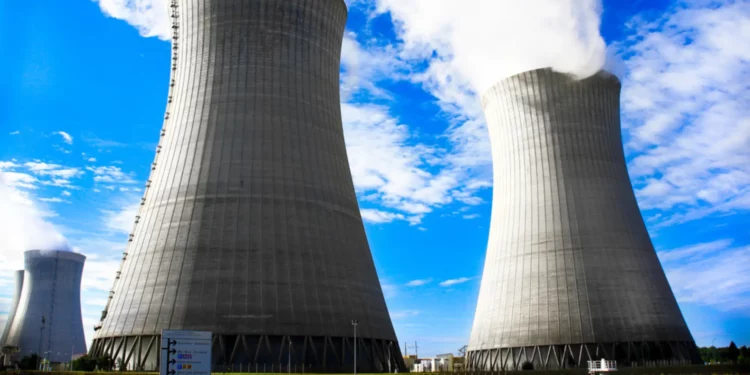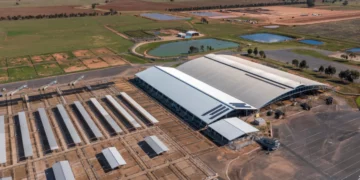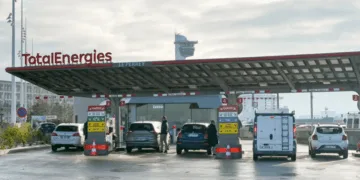Australia should use their advantage of being the sunniest country to produce wind and solar energy and replace its ageing fleet of coal-powered plants.
Australia‘s leading opposition party has laid out a plan worth A$331 billion ($211 billion) to build a taxpayer-funded nuclear power industry within a little over ten years, despite the country’s top scientists stating that renewable resources like wind and solar power are much more cost-effective.
During a press conference in Brisbane on Friday, Peter Dutton, the leader of the center-right Liberal Party, announced the cost of his nuclear initiative, saying that it is a significant aspect of his coalition election strategy with the National Party ahead of the May election.
This announcement comes at the same time as a global revival of nuclear technology as the cost of energy increased after Russia invaded Ukraine in 2022.
Peter Dutton proposed that nuclear power would cost over $300 billion due to the weakening economy and higher carbon emissions.
Under the proposal, more than 50% of Australian electricity will come from renewable resources, but coal is preserved for an extended period to cover any shortfall till nuclear plants are built, which would take a maximum of 12 years.
Dutton stated that nuclear power is important for the economic success of the country for the next century.
He asserts that it would provide reliable and consistent electricity, which eventually would reduce the cost for Australians and help achieve the decarbonization goal.
Climate change has been an issue in Australia for many years, where the country has experienced increased flooding, drought, and fires.
It is also one of the biggest exporters of fossil fuels and one of the highest per capita emitters in the world.
This issue played a significant role in removing Dutton’s predecessor during the 2022 elections.
The Labour government has been promoting the use of renewable energy.
Australia is one of the sunniest countries with vast and sparsely populated areas.
They should use their natural advantage and use the areas to produce wind and solar energy and replace their aging fleet of coal-powered plants.
However, the coalition government has criticized this approach, stating to maintain grid stability, they need continuous power from nuclear sources.
Dutton suggested a plan to build seven nuclear plants by 2050, with the first plant to start operating by 2036.
Currently, the power source is banned in Australia, meaning that any atomic industry has to start from scratch.
According to Dutton, by 2050, Australia will have 54% renewable energy, 38% nuclear, and 8% storage and gas energy.
However, the Labour government wants 82% of electricity from renewable energy by 2030.
After the Coalition realized its modeling, Energy Minister Chris Bowen stated in a press conference that the strategy was flawed with fundamental mistakes.
He highlighted three critical mistakes: the assumption that Australia will need less energy demand by 2050, the expectation of savings due to fewer transmission lines, and the belief that the cost of $30 per megawatt will remain the same with nuclear power.
According to the Commonwealth Scientific and Industrial Research Organisation (CSIRO) and Australian Energy Market Operator (AEMO), nuclear energy is expensive. In contrast, Peter Dutton and Ted O’Brien argue that it is affordable.
Mr Bowen also criticized the Coalition for failing to show the effect of nuclear energy on energy bills.
He remarked that even after discussing the effects of nuclear energy costs, they could not quantify an estimate of how it would affect the Australians.
Prime Minister Anthony Albanese called it a ‘concerning’ policy for the 2040s.
He added his uncertainty about what would happen to the energy security.
The Climate Council also questions the Coalition’s modeling as questionable.
In a statement, Climate Council chief executive Amanda McKenzie stated that the federal Coalition’s nuclear scheme could jeopardize their children’s future.
If they delay the atomic reactors for up to 20 years, it will prolong the usage of coal and fossil gas.

















